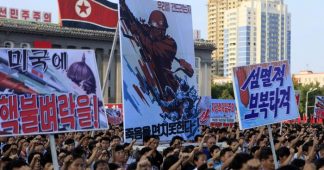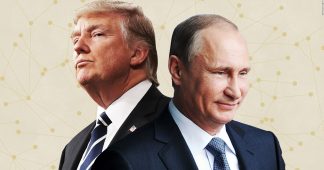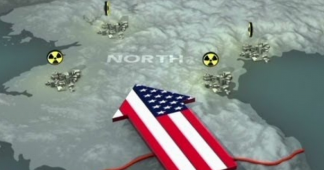Since the early 1990s, economic sanctions have emerged as a favoured foreign policy tool. With the US ramping up measures against North Korea and Russia, it seems sanctions are here to stay – despite their many flaws
By Emily Cashen
April 20, 2017
In our post-Cold War society, economic sanctions have become one of the defining features of the political landscape. Since the early 1990s, the US, Europe and other developed economies have employed sanctions on other nations more than 500 times, seeking to assert their influence on the global stage without resorting to military interventions. From nuclear non-proliferation to the promotion of fundamental human rights, the political goals behind such sanctions are diverse and ambitious, while the measures themselves can take many forms. And yet, though sanctions are often intended to serve as a peaceful alternative to military action, their use is not without controversy.
As the comprehensive trade sanctions on Iraq came to dominate newspaper headlines throughout the 90s, the humanitarian impact of the embargo became hard to ignore. The economic stranglehold of the stringent sanctions saw Iraqi children fall victim to malnutrition and prolonged suffering, while a lack of medical supplies and a shortage of clean water led to one of the worst humanitarian crises in modern history. For many academics, diplomats and activists, the Iraq embargo shone a light on the ethical cost of sanctions, generating widespread caution concerning the future use of such comprehensive measures.
Ethics aside, however, the proliferation of sanctions cases over the past two decades has also sparked extensive academic debate over their effectiveness as a tool in international diplomacy. In terms of changing behaviour, sanctions have a poor track record, registering a modest 20-30 percent success rate at best.
With the US currently extending economic measures against both Russia and North Korea, sanctions are again being debated. As they continue to shape 21st-century foreign policy, it is high time to reflect on both the effectiveness and the ethics of this frequently employed policy tool.
Read more at https://www.worldfinance.com/special-reports/the-impact-of-economic-sanctions
Also read











